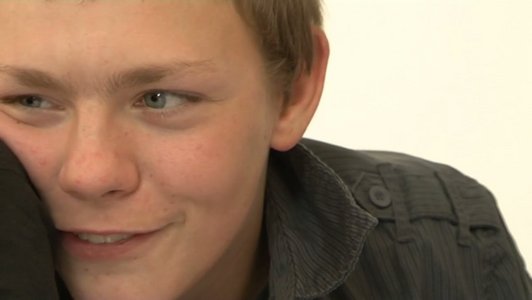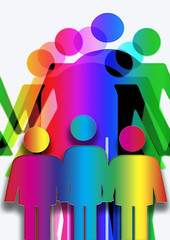JuMuW [You move]
Youth research workshop multicultural Vienna. An interdisciplinary research project on intercultural learning and multicultural lifeworlds for teenagers and by teenagers in Vienna
In Vienna 40 per cent of lower secondary school pupils have migrant background. Cultural heterogeneity is considered a great challenge. Although the federal laws on the secondary school curriculum define intercultural learning as one of the overarching principles of the curriculum, this principle of intercultural learning is too vague and abstract to be implemented in everyday teaching and learning (Fillitz et. al 2003). JuMuW offers a possible solution in three phases:
1) In phase I, social anthropologists, education specialists and teachers in two Viennese lower secondary schools (with a vocational focus) create a didactic concept for dealing with cultural heterogeneity, the Youth Workshop or Youth Research Lab. Here, intercultural learning is connected with self-directed enquiry-based learning in learning environments which are highly relevant for the pupils (e.g. their schools, their neighbourhoods). One tenet for developing the concept which all participants hold is that young people, irrespective of their origins, are multicultural (Amit-Talai 1995).
2) In phase II, this didactic concept is put into practice with 13 year olds in the Youth Research Workshop in the course of 2 semesters. This Research Workshop is connected to many school subjects but takes place at the University. In the 1st semester, the pupils develop their everyday skills into research skills by learning social science methods, core anthropological ideas (e.g. about age, gender, lifeworlds, power), increasing their gender competence and interacting with adult researchers. In line with the vocational focus of their schools, social science is presented to the pupils as a practical craft to engage with the social and material environment in different meaningful ways.
In the 2nd semester the pupils apply their research skills to a research project of their own design, carrying them out alone or in small teams. As experts of their own youth cultures with a special focus according to their gender and socio-cultural background, they research on different topics, such as Vienna as lived environment, teenage behaviour in school and leisure time, everyday life as well as holidays. They produce small ethnographies which are bound to give new insights into youth cultures both for the researchers and the teachers. They present their results in the framework of a junior researchers' congress at the University of Vienna.
3) In phase III researchers and teachers process the results in such a way that they can be practically implemented beyond this project in the Austrian school system.
All phases are documented on the Internet using web 2.0 tools.
The whole project is aimed at empowering teenagers and increasing their appreciation of cultural diversity by teaching them about social science.
In the course of the project, a number of products are produced: a website, a catalogue with DVD featuring research results of pupils and reflections of the adult researchers, didactical material to carry out a similar project in other schools, a video documentary and scholarly articles.
This project is already completed.
 Schools
Schools
 Partners from Economy and Society
Partners from Economy and Society
 Scientific institutions
Scientific institutions





